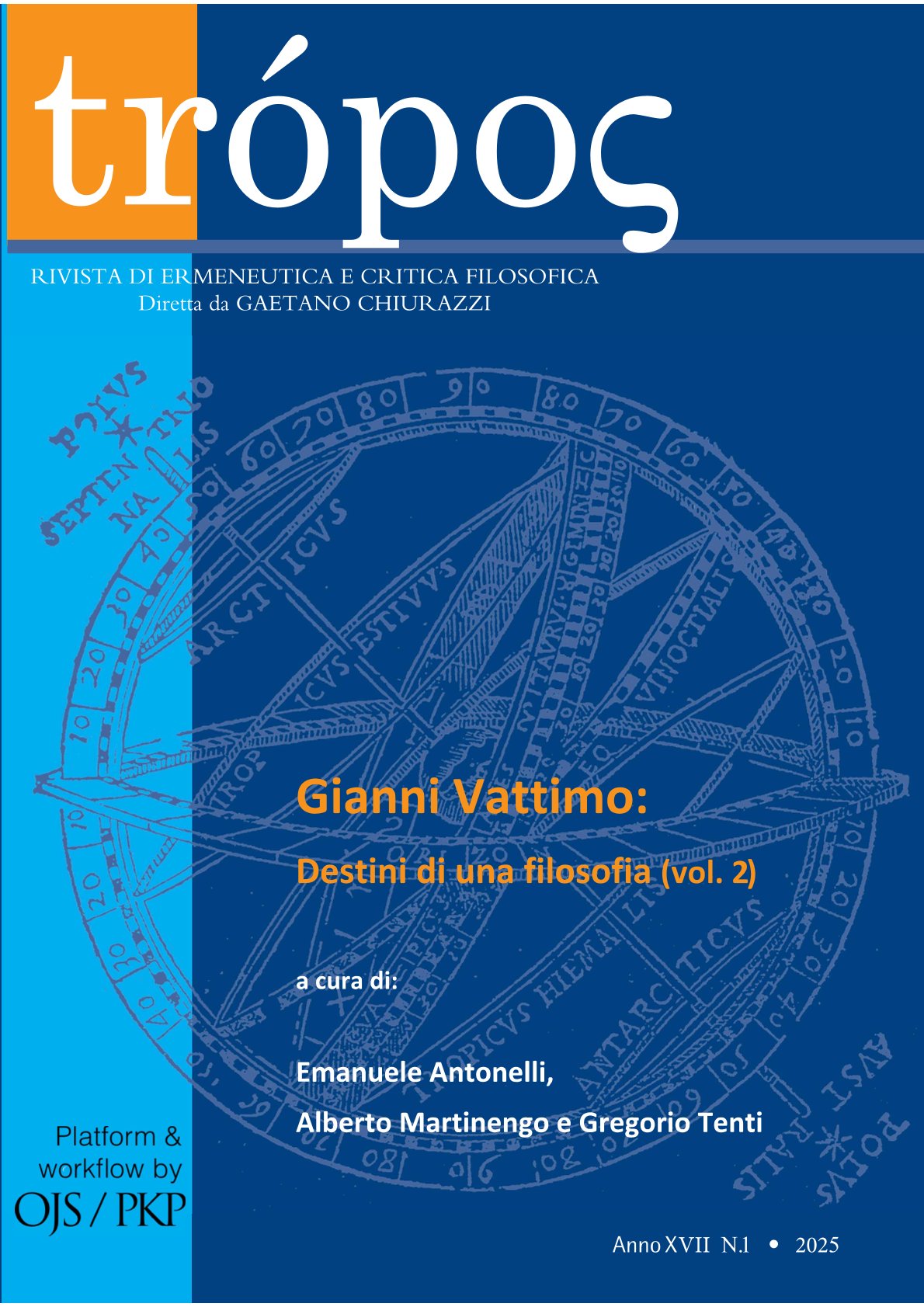L’attualità dell’estetica di Vattimo
DOI:
https://doi.org/10.13135/2036-542X/12308Parole chiave:
aesthetics, hermeneutics, ontology, truth, art, critiqueAbstract
This paper explores the contemporary relevance of Gianni Vattimo’s aesthetic philosophy, particularly its connection between art, truth, and everyday experience. Vattimo, influenced by hermeneutics and “weak thought,” sees aesthetics as central to philosophy, replacing traditional metaphysics in an era of weakened absolutes. Heidegger’s idea of art as an event of truth informs Vattimo’s perspective: art is not merely an object of appreciation but a transformative force that reshapes perception. This aligns with his reading of Nietzsche, in which aesthetic experience is a playful yet critical engagement with reality. Vattimo also reflects on the “twilight of art,” suggesting that art dissolves into everyday aesthetics rather than disappearing. This challenges conventional boundaries, making aesthetic experience part of ordinary life. While mass media risks trivializing art, Vattimo sees this diffusion as a liberating phenomenon. His aesthetics remain relevant for discussions on the role of art in social critique and ethics. By framing aesthetics as an interpretive and transformative practice, Vattimo offers a philosophical perspective that resonates with current debates on art’s function in contemporary society.


